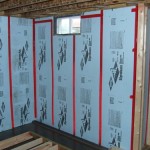Oil Vs Propane For Heating
Oil Vs Propane
This year I wrote about comparing the cost of heating with oil versus heating with propane. The two posts that I wrote, Heating – Propane Vs Oil and Oil Vs Propane Fuel Calculator have been read more than any other posts I’ve written. So I thought it would be interesting to mention them again with heating oil around here above the $4.00 per gallon and propane in the $3.00 range. I’ve received lots of requests for the simple spreadsheet I wrote that helps you compare the two fuels for different furnace types and I’ve also received lots of comments and questions on the subject.
Its important to understand where propane comes from so that you can better understand how the price of it is influenced in today’s market. Propane is a by-product from two sources: natural gas processing and crude oil refining. Most of the LPG used in the United States is produced domestically. When natural gas is produced, it contains methane and other light hydrocarbons that are separated in a gas processing plant. Because propane boils at -44°F and ethane boils at -127°F, it is separated from methane by combining increasing pressure and decreasing temperature. The natural gas liquid components recovered during processing include ethane, propane, and butane, as well as heavier hydrocarbons. Propane and butane, along with other gases, are also produced during crude refining as by-products of the processes that rearrange or break down the molecular structure to obtain more desirable petroleum compounds.
The big question that I keep hearing is which fuel will be a better choice given the instability in the oil market. If I knew the answer to that then I would quit my day job and sell fuel! But, if you take a look at the graph below you’ll see that propane prices have very clearly mirrored the crude oil prices in this country. So I would say it’s safe to say that both #2 heating oil and propane will both go up and down at similar rates. As I mention in my previous posts you really should make the decision on other factors and not the price because the price ends up a wash.
 Note: Data are not adjusted for inflation.
Note: Data are not adjusted for inflation.
Source: Crude Oil: West Texas Intermediate Crude Oil Spot Prices as reported by Reuters News Service; Propane Prices: Energy Information Administration, Petroleum Marketing Monthly.
Related Posts:
Heating – Propane Vs Oil
Oil Vs Propane Fuel Calculator













Hello gents,
I am in the process of designing a water Solar home.The system will have a propane water heater . I was trying to get a handle on Propane fuel versus other energies.This article is very effective in confirming my thoughs and my design. The problem I have is that statements made by the Geothermal advocates. They get 200-300 %efficiency. 5 and 6 HP compressors seem to operate on nothing. I somehow can’t seem to wrap my head around those claims. I am in an area where there is 4000 heating degree days per year.Comments please.
John – Thanks for sharing your thoughts. Frankly I’m just as baffled by such claims. Please do share if you find answers.
300-200% efficiency ? Sorry, no such thing. Take a quick look at the 3 laws of thermodynamics. Someone is playing with advertising claims to get you to believe that there really is a “free lunch”.
In the end, there is no free lunch. You can play with energy efficiencies will up into the 90’s, but in the end, you are moving heat with electricity using heat pumps. Below 20deg F it gets really challenging.
We installed a ground source geothermal heating system two years ago and it’s true. We heated in upstate New York for about $500 last year. The up front costs are high but the payback isn’t that far out when you consider it’s at least two times as efficient as any other heating source out there.
The anti-freeze in the closed loop (water and methanol) got down to 31 degrees in January and the heat pump was still pulling enough heat from the antifreeze to heat our home.
I’m not a thermodynamics guru but am very good and counting kWh and paying heating bills!
Geothermal is the most cost-effective and efficient source out there – hands down.
John: I was baffled as to how a heat pump could be more efficient at heating than just using electric resistance heaters. Seems to break the laws of thermodynamics. With resistance heaters, basically 1 electrical input, and 1 heat output (I think all resistance heaters are considered 100% efficient). But with a heat pump, you are not warming (or cooling) the air–rather, you are moving the heat in the outside air from outside to inside. So, with 1 input of energy, you can get anywhere from 2 to 3 outputs of heat. Where I used to live, a heat pump was very efficient–heated 3640 sq. ft of house in Dec/Jan for $176 of electricity per month (Vancouver Island area), and that included water heating and lights for that period (me and my wife only). This was an air to air system. In the summer, the process is reversed, and the heat pump transfers the heat from the air, and works as an air conditioner. Basically, there are refrideration systems. A good resource for this is Natural Resouces Canada website. Good luck with your home.